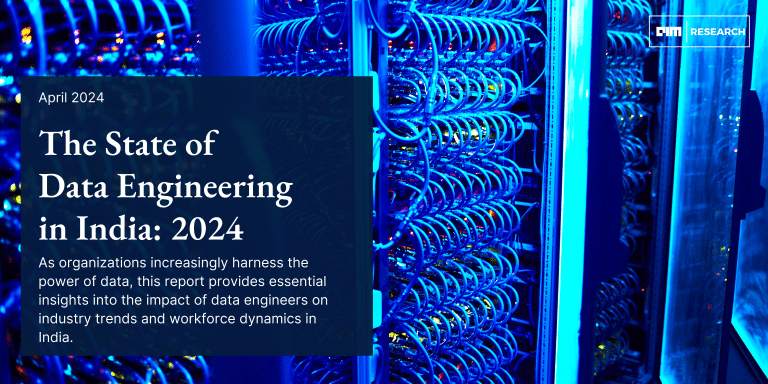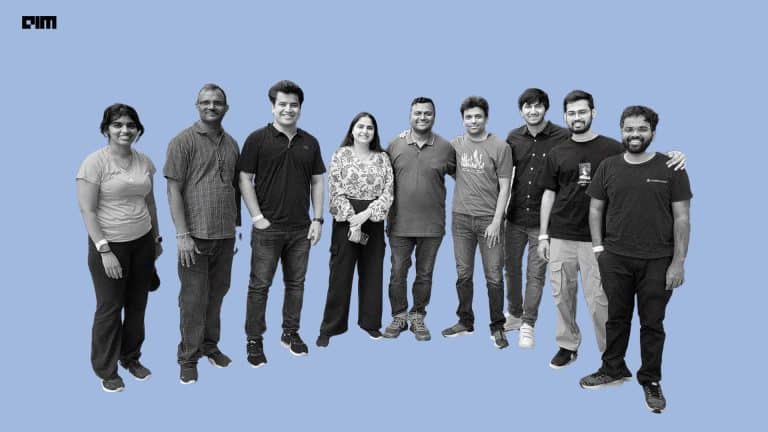|
Listen to this story
|
In an era when being a Data Scientist was the epitome of cool, college graduates flocked to the field, drawn by the allure of its potential. The hype was real, and the demand for these professionals was skyrocketing. However, as artificial intelligence (AI) and machine learning (ML) continue to advance at an astonishing pace, doubts have arisen about the very existence of Data Scientists. The rapid adoption of AI and ML has ignited a passionate debate about the future of this once-revered profession.
On one side of the argument, there are those who assert that the recent announcement of OpenAI that the company will be introducing plugins to ChatGPt while teasing the launch of a code interpreter and web browser plugin will render traditional data science roles obsolete. They believe that the plugins may replace many of the common workflows of a data scientist, including visualization, trend analysis, and even data transformation. When looking at the code interpreter in tandem with the other advancements in the data science field, there is a notion that the algorithms and automation offered by AI will replace the need for human intervention in data analysis. Conversely, there are those who staunchly maintain that AI and ML will open up new and exciting opportunities in the field of data science.
One such role is of ML Engineers, where experts believe that the role of Data Scientists will gradually transform into. According to a report by Indeed, the job title “machine learning engineer” is growing at a rate of 344%, while the job title “data scientist” is growing at a rate of 25%. While another report by O’Reilly Media found that 80% of data scientists are planning to learn machine learning in the next year.
Since the age of generative AI is catching up, and the models often involve large-scale data processing and sophisticated algorithmic architectures, ML Engineers will be in more demand than ever. The engineers possess the technical expertise to handle the computational challenges associated with training and deploying these models effectively. They have a deep understanding of distributed computing, parallel processing, and GPU acceleration, allowing them to optimize the performance of generative AI models and scale them to handle vast amounts of data.
Additionally, ML Engineers are skilled in the deployment and productionisation of ML models. Generative AI models are not just research prototypes; they are increasingly being integrated into real-world applications. ML Engineers have the know-how to deploy these models into production environments, ensuring their stability, scalability, and robustness. They are proficient in building end-to-end ML pipelines, handling data preprocessing, model deployment, and monitoring, which are crucial steps in incorporating generative AI into practical use cases.
Furthermore, generative AI models often require fine-tuning and customization to align with specific business objectives and user requirements. ML Engineers possess the expertise to fine-tune and adapt these models, leveraging techniques such as transfer learning and hyperparameter tuning. They can tailor generative AI models to address specific challenges and optimize their performance for the intended application domain. Moreover, ML Engineers have a comprehensive understanding of the ethical implications and considerations associated with generative AI. They are aware of the potential biases, fairness issues, and privacy concerns that can arise when deploying AI models that generate content. ML Engineers are equipped to address these challenges and implement safeguards to ensure the responsible and ethical use of generative AI.
Data Designers
The role of a “Data Designer” is also becoming increasingly crucial in today’s data-driven organizations, particularly in the era of Generative AI. These professionals hold the responsibility of defining the organization’s “unique norm of data,” encompassing aspects such as data literacy, models, topics, and ontology. Moreover, they play a pivotal role in establishing a unified and coherent data vision across the entire organization, ensuring that everyone adopts a “common language” when dealing with data.
The primary focus of a data designer is to establish a structured framework for data management, ensuring that data is organized, accessible, and usable across the organization. They design and implement data models, which serve as blueprints for how data is structured, stored, and interconnected. These models help in capturing and representing the relationships between different data elements, enabling efficient data analysis and interpretation.
In addition to data modelling, data designers also define data standards and guidelines for data governance. They establish data quality criteria and ensure that data is accurate, consistent, and reliable. Data designers collaborate with various stakeholders, including data engineers, data scientists, and business analysts, to understand their data requirements and translate them into practical data design solutions.
Another important aspect of a data designer’s role is to create a common language or ontology for data within the organization. They develop a standardized vocabulary and terminology that allows different teams and departments to communicate effectively when working with data. This helps in avoiding confusion, improving collaboration, and promoting data literacy across the organization.


















































































